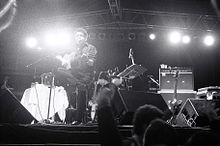
Lulu Santos, stage name of Luiz Maurício Pragana dos Santos, is a Brazilian singer and guitarist.

Guilherme de Brito Bollhorst, known as Guilherme de Brito, was a Brazilian sambista, singer, songwriter, and painter.

Wanderléa Charlup Boere Salim is a Brazilian singer and former co-host of the historic television show Jovem Guarda alongside Roberto Carlos and Erasmo Carlos. The show aired on TV Record between 1965 and 1968. Wanderléa was nicknamed Ternurinha after her first hit "Ternura".

Sergio Bavini, known as Sérgio Reis, is a Brazilian sertanejo singer, actor and politician. He has sold approximately 16 million copies of his more than 40 album releases.
The Brazilian Jazz Quartet was an underground Brazilian jazz quartet from the late 1950s featuring Moacyr Peixoto (piano), José Ferreira Godinho Filho "Casé", Rubens Alberto Barsotti "Rubinho" (drums) e Luiz Chaves Oliveira da Paz "Luiz Chaves" (bass).
Antônio André de Sá Filho, known as André Filho was a Brazilian actor, violinist, mandolinist, banjo player, guitarist, pianist, composer and singer. He worked with some of Brazil's most notable performers of the 1930s including Carmen Miranda, Mário Reis and Noel Rosa.
Lucas Mascarenhas Santana, known as his stage name Lucas Santtana, is a Brazilian singer, composer and producer from Salvador, Bahia, Brazil. In his CD, Sem Nostalgia, he recreates the Brazilian guitar tradition, mixing up sounds from the 1950s, like João Gilberto and Dorival Caymmi, with mashups, samples and his own creations.
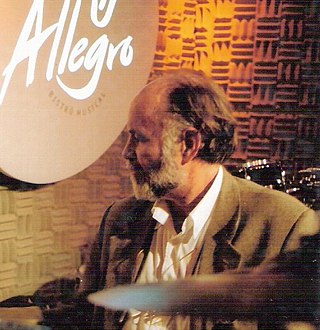
Mário Negrão Borgonovi is a Brazilian composer, drummer and percussionist.
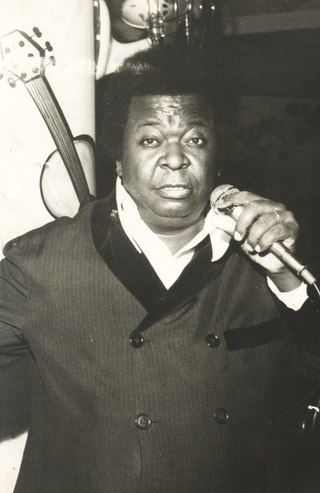
Monsueto Campos de Menezes, better known as Monsueto, was a Brazilian sambista, singer, composer, drummer, painter, and actor. He was a part of the samba de morro school, and helped popularize it along with other artists such as Cartola, Nelson Cavaquinho, Clementina de Jesus, Silas de Oliveira, Mano Décio da Viola, and Zé Keti. His musical output, though small, is considered very valuable to the history of Brazilian music.
Antonio Martins Correia Filho, known professionally as Nico Rezende, is a Brazilian singer, composer and musical arranger.

Rebanhão was a Christian rock band from Brazil that had about twenty years of activity. Its founder is the singer and songwriter Janires Magalhães Manso who had just converted to Christianity and with friends in São Paulo created a new rock group that joined poetic lyrics with Christian themes. Soon the musician departed for Rio de Janeiro, where they finally assembled the "Rebanhão" that would be remarkable in Brazil, which would pass through tree distinct phases.
Luiz, o Visitante is the stage name of Luiz Paulo Pereira da Silva, a Brazilian singer, songwriter, producer and designer. The rapper has recorded one album, became known for his songs "Recomeço" and "Rolé a Noite".

The Dicionário Cravo Albin da Música Popular Brasileira is a non-commercial website maintained by the Instituto Cultural Cravo Albin. Its objective is to gather information about artists, musicians and musical groups of música popular brasileira (MPB).

Ludmila Múrias Ferber Lino was a Brazilian Christian singer, songwriter, worship pastor and writer.
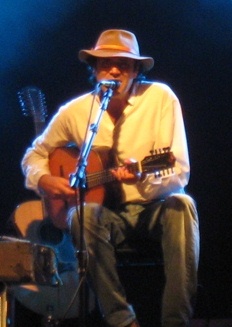
Almir Eduardo Melke Sater is a Brazilian singer-songwriter and actor.
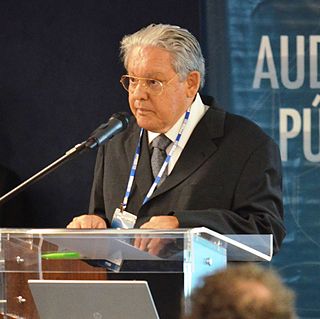
Fernando Rocha Brant was a Brazilian poet, lyricist and journalist, born in Caldas, Minas Gerais.
Lui Morais is a Brazilian hermetic writer, professor and philosopher, polygraph author of books about philosophy, alchemy, literature, xamanism, Brazilian popular music (samba), movies, management, education, deafness, critics, literature and other matters. Morais is married to the writer Eliane Colchete, his partner in several novels and essays. Morais is also a poet, which can be seen from his book Recycling Poetry (2014) which brings together the pre-classical to postmodern, and mixes languages, with lyrics in Portuguese, English and Spanish, and with the intersection of other languages.

Antônio Carlos Moreira Pires, better known as Moraes Moreira[mo.ˈɾajs mu.ˈɾej.ɾa], was a Brazilian musician and songwriter. During the 1970s he played guitar and sang in the band Novos Baianos, after which he embarked on a solo career recording 29 albums. Moreira was involved in recording 40 full-length albums with Novos Baianos and Trio Elétrico Dodô e Osmar, and two more albums with guitarist Pepeu Gomes. Moreira was one of the most versatile composers of Brazil, mixing the genres of rock, samba, choro, frevo, baião, and classical.

Rosana Fiengo, popularly known as Rosana and, posteriorly, as Rosanah Fienngo, is a Brazilian singer. Her greatest hit was the song "O Amor e o Poder", part of the telenovela Mandala soundtrack (1987).

Péricles Aparecido Fonseca de Faria, also known as Péricles, or Periclão, is a brazilian singer, composer and instrumentist of pagode, a subgenre of samba. He was the vocalist of Exaltasamba since the band's formation, in 1982, until late February 2012, when he decided to follow a solo career.
